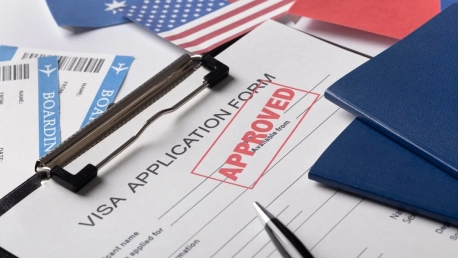The recent passage of a controversial law in Iowa has thrust the state into the center of a heated national debate over immigration enforcement. At the heart of the issue is a legal dispute over the power dynamics between state and federal governments when it comes to controlling the nation’s borders. Iowa’s law pushes the envelope by providing state and local law enforcement with the authority to arrest and potentially deport migrants who have been denied entry into the United States or have outstanding deportation orders. The legality of such state-level initiatives sparks potent challenges, particularly from the Department of Justice (DOJ) and numerous civil rights organizations.
Federal Precedence in Immigration Laws
Legal Authority and Constitutional Conflict
At the core of the inherent constitutional conflict is the doctrine of federal supremacy, which places the power to regulate immigration squarely within the jurisdiction of the federal government. This precept is not only laid out in the Constitution but also supported by numerous Supreme Court rulings that affirm the federal government’s exclusive rights in immigration matters. Legal scholars and officials from the DOJ contend that Iowa’s law risks infringing upon this established domain, potentially disrupting the uniform application of immigration laws across the United States.The Constitution does not grant individual states the authority to unilaterally enforce immigration policies or to conduct deportations. While states have argued that their involvement is necessary to complement federal efforts, the implied encroachment on federal powers presents a significant legal hurdle. The current situation in Iowa is a real test of the boundaries between state legislation and federally mandated authority.
Potential for Wrongful Arrests
The vagueness of the new Iowa law raises alarm bells for wrongful arrests. Legal analysts and civil rights advocates argue that such a law could lead to the detention of non-citizens who are lawfully present in the country, including those granted asylum or holding valid visas. The lack of clarity in the state law’s language threatens to ensnare individuals who do not fall within its intended targets, leading both to individual tragedies and to wider societal fears among immigrant communities.Critics of the law worry about the potential for state and local law enforcement officers to engage in overzealous application of immigration enforcement duties. This could result in the unjust profiling and apprehension of people based on their appearance or accent, irrespective of their legal status, causing irreparable harm to families and communities and straining the resources of the legal system.
Legal Battles and Societal Impact
DOJ’s Stance and Previous Warnings
The Department of Justice’s lawsuit against Iowa’s immigration law follows a consistent pattern of federal pushback against state-level immigration initiatives. Citing earlier confrontations, such as with Texas over its immigration enforcement law, the DOJ aims to preempt the practical application of Iowa’s measures. Given the precedence of federal law, the DOJ’s stance solidifies its intent to combat any law that might infringe upon its jurisdiction or hinder its ability to enforce immigration policies effectively.The DOJ’s involvement sends a clear message that the federal government will not cede control over immigration to the states. Moreover, the move underscores the importance of federal discretion in distinguishing between rightful targets for deportation and individuals who are in compliance with immigration laws.
Advocacy Groups’ Actions and Community Fears
Civil rights groups, including the American Civil Liberties Union (ACLU) of Iowa and the American Immigration Council, have followed the DOJ’s example by challenging Iowa’s immigration law in federal court. They argue that the law could lead to discrimination and infringe upon the rights and liberties of non-citizens residing in Iowa.The dispute over this law has stirred palpable fear within immigrant communities in Iowa. There is a heightened risk that individuals might be less inclined to seek assistance from law enforcement or report crimes because of the fear of arrest and deportation—regardless of their legal status. In response to this atmosphere of dread, advocacy organizations have been actively working to educate immigrants about their rights and to coordinate resistance to the law’s implementation through protests and awareness campaigns.
Political Context and Enforcement Challenges
State Measures Amid Federal Inaction
Proponents of Iowa’s immigration law, including Governor Kim Reynolds, posit that the action is necessary due to what they perceive as shortcomings of the Biden administration in securing the U.S. southern border. This presents a narrative of state-level intervention as a needed recourse in light of federal inaction and highlights the political and ideological rift within the United States over immigration policy.The legality and practicality of such state initiatives, however, are contentious. Beyond the constitutional questions they raise, their effectiveness in addressing complex migration issues remains debatable. While resonating with some segments of the electorate, these laws expose fissures in the cohesiveness of U.S. immigration policies and challenge the limits of state power.
Repercussions for Immigrant Communities
Iowa has recently become the epicenter of a contentious national conversation on immigration law due to new legislation granting expanded powers to state and local authorities. This law is sparking debate over the delicate balance of immigration enforcement responsibilities between state and federal governments. Specifically, it allows Iowa law enforcement to arrest and potentially deport individuals who have been refused entry to the U.S. or face active deportation orders. This aggressive state-level approach is drawing significant legal challenges, notably from the Department of Justice and various civil rights groups, concerned with its implications on civil liberties and state overreach into matters typically handled at the federal level. The controversy highlights the ongoing tension in the American immigration landscape and raises questions about the jurisdictional limits of state immigration enforcement.









